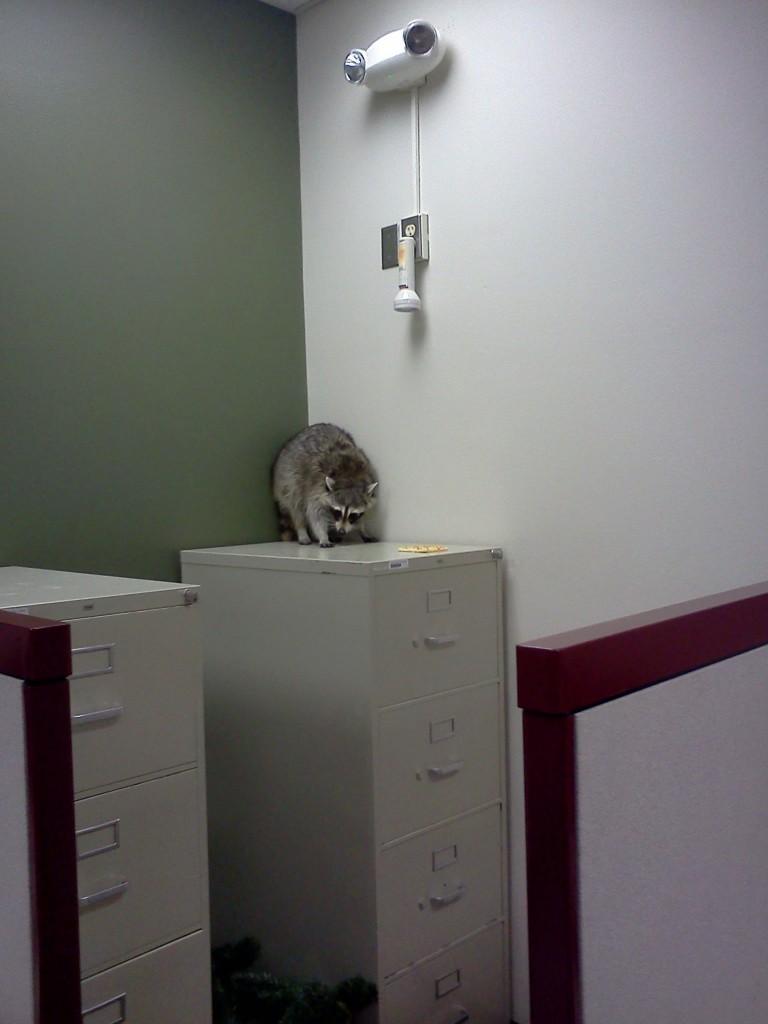By Elaine Bonilla/reporter
It’s the first day of class, and students trickle into the classroom ready to meet their history instructor. The class is silent when they see their teacher. Clearly, there is something physically different with him.
Kevin Smant has very noticeable inverted eyes, a mask-like face, a mouth that doesn’t fully close, and he can’t blink his eyes.

David Reid/The Collegian
The South Campus adjunct has Moebius syndrome, a rare neurological disorder that affects only about 2,000 people in the United States. Moebius affects the sixth and seventh cranial nerves, which prevents facial movement so it looks like the person has a mask-like face. It also affects the ability to move eyes laterally.
One of Smant’s U.S. history students, Eugene Yanez, said he was surprised when he walked into class and saw Smant, mainly because it’s not something one sees every day.
Smant uses the fact that he has Moebius as an opportunity to teach his students about a disorder they probably otherwise would not know about.
“I explain to students about Moebius on the first day of class,” Smant said. “It only takes about 10 minutes to explain.”
Before, Smant was shy about Moebius and would not tell his students about the disorder, but he always knew they wondered what was wrong.
“I’m still shy sometimes, but I try not to let it show,” Smant jokingly said.
Other issues he deals with on a daily basis involve his lack of facial movement. Since blinking is not an option for him, he must roll his eyes up to keep them moist. Like many others with Moebius, he lacks the ability to smile and fully close his mouth.
“I feel like I always have a grim look on my face,” he said.
Smant also lacks the ability to have full-lip closure, which affects his speech. The impediment only affects certain letters such as M, V and B. He found it ironic that Moebius is one of the most difficult words for him to say. In class, Smant has to stop frequently while lecturing because his mouth gets dry. His solution is to stop for a moment and pop a mint in his mouth. Occasionally, students have trouble understanding what he’s saying, so he has to repeat himself.
Yanez said adjusting to the way Smant speaks isn’t any different than adjusting to the way someone with a heavy accent speaks.
“I don’t find it hard to understand what he [Smant] says when he’s teaching,” Yanez said. “You just have to adjust to how different people speak.”
Since Smant has inverted eyes, he can see out of only one eye at a time. Students sometimes have difficulty knowing whether he is looking at them or someone close by. It also causes trouble when he has to read.
“When I read, I can’t move my eyes from side to side. Instead, I have to move my head,” he said, “I have to point at students when they raise their hand to ask a question.”
For the first part of his life, Smant never knew what was wrong with him. He just knew he was different from everyone else. He didn’t find out
until his 20s what his condition was called. After researching his condition more, he stumbled across the Moebius Syndrome Foundation, attended a conference and eventually became involved.
Smant now serves as a member of the foundation’s board along with Vicki McCarrell, the foundation’s president and co-founder. The foundation aims to raise awareness and understanding, advocate for research and treatment and provide support to individuals and their families.
McCarrell said she thinks if Smant had not become involved in the foundation, his life would probably be different.
“At one of the conferences, he actually met his wife, Lisa, who also has Moebius,” McCarrell said. “We are all really good friends now.”
Kevin and Lisa met briefly at the 2002 conference near Chicago but began talking more in 2004 when the conference came to Texas. After dating for about a year, the couple got married.
“He truly understands me on a level that not many other people do,” Lisa said.
They believe they are the only married couple who both have Moebius. Now, they have two children together, neither of whom has the syndrome.
When Lisa Smant found out she was pregnant, the Smants hoped for the best when it came to whether their children would have the syndrome. She realized if their children did, in fact, have the syndrome too, at least they had personal experience with it already.
“I knew that whoever our child was or was not – it would be an amazing adventure,” Lisa Smant said.
Kevin Smant ends his Moebius discussion with his class, but not before leaving them with some simple inspirational words.
“We all have things to overcome. We can do it,” he said.


























